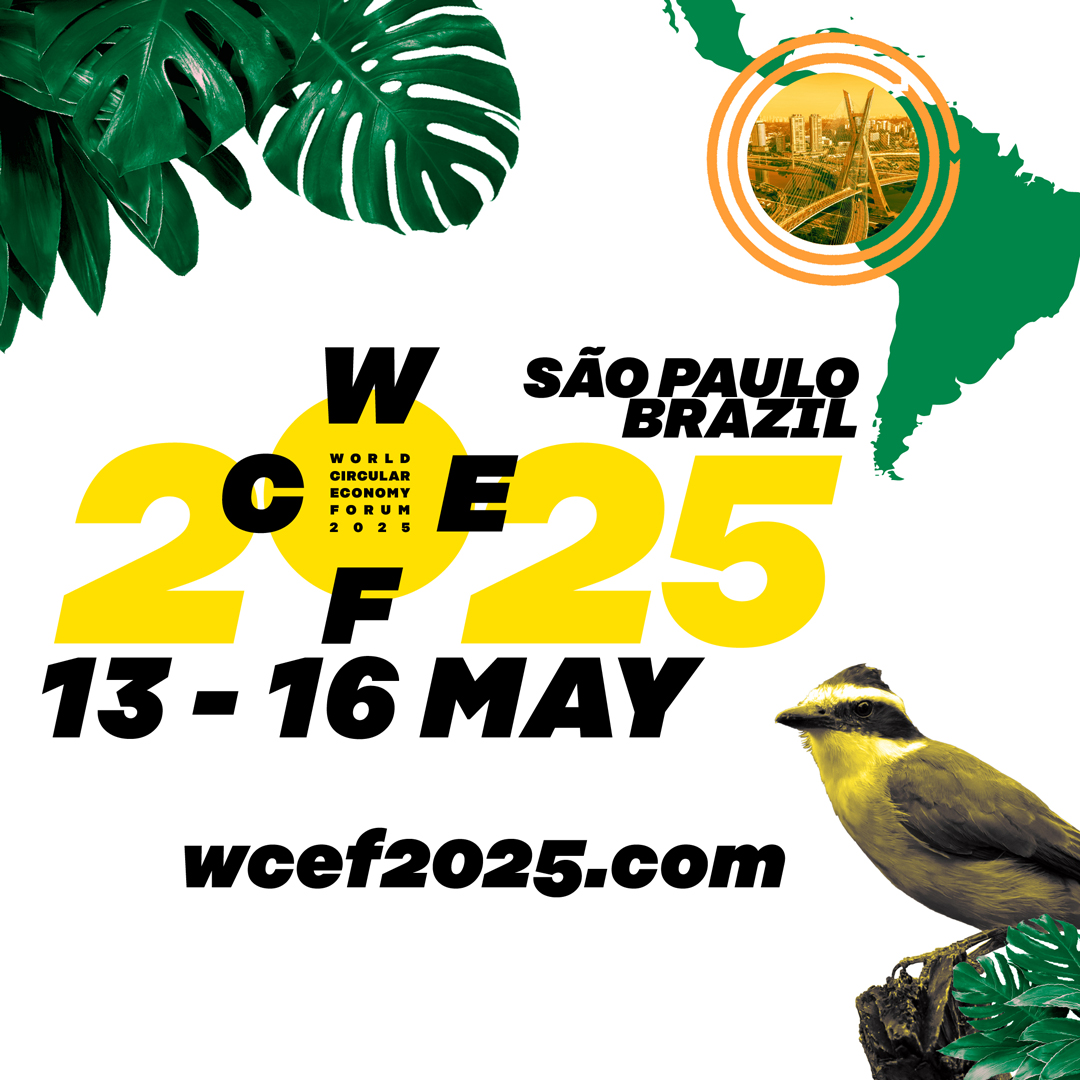Hybrid Event
Accelerator Session WCEF2025: Brazil and EU leadership to advance circular economy as a leverage for just energy transitions
.png)
This session explores the transformative role of circular economy strategies in advancing a just transition, with a strong focus on EU-funded initiatives and Brazil as a key partner. It will showcase collaborative efforts in integrating bio-based solutions or enhancing resource efficiency across key sectors such as energy, agri-food systems, and industry. The discussion will highlight policies, financing mechanisms, and innovation ecosystems that support local actors, ensuring inclusive participation so the transition is fair and equitable.
The session will also build on findings from national circularity roadmaps, addressing financial and trade enablers for circular solutions and global governance gaps. Practical case studies will illustrate how circular practices—from recycling and remanufacturing to waste recovery—can drive economic competitiveness, environmental sustainability, and social equity.
Stakeholders from policy, business, and civil society will contribute to identifying scalable models that align with global environmental and development goals. The session will facilitate exchange between EU, Brazilian, and Latin American actors, supporting high-level adoption of circularity principles in post-2030 global frameworks and increased ambition ahead of COP30.
This event/webinar is an accelerator session at the World Circular Economy Forum 2025. WCEF2025 will gather forward-looking thinkers and doers and present the game-changers in the circular economy. The forum will be held from 13 to 16 May in São Paolo, Brazil. WCEF2025 is organised jointly by the Finnish Innovation Fund Sitra, FIESP (Federation of Industries of the State of São Paulo), CNI (Brazilian National Industry Confederation) and SENAI-SP (Brazilian National Industrial Learning Service), in close collaboration with international partner organisations. Free of charge, open to all online.
.png)
This session explores the transformative role of circular economy strategies in advancing a just transition, with a strong focus on EU-funded initiatives and Brazil as a key partner. It will showcase collaborative efforts in integrating bio-based solutions or enhancing resource efficiency across key sectors such as energy, agri-food systems, and industry. The discussion will highlight policies, financing mechanisms, and innovation ecosystems that support local actors, ensuring inclusive participation so the transition is fair and equitable.
The session will also build on findings from national circularity roadmaps, addressing financial and trade enablers for circular solutions and global governance gaps. Practical case studies will illustrate how circular practices—from recycling and remanufacturing to waste recovery—can drive economic competitiveness, environmental sustainability, and social equity.
Stakeholders from policy, business, and civil society will contribute to identifying scalable models that align with global environmental and development goals. The session will facilitate exchange between EU, Brazilian, and Latin American actors, supporting high-level adoption of circularity principles in post-2030 global frameworks and increased ambition ahead of COP30.
This event/webinar is an accelerator session at the World Circular Economy Forum 2025. WCEF2025 will gather forward-looking thinkers and doers and present the game-changers in the circular economy. The forum will be held from 13 to 16 May in São Paolo, Brazil. WCEF2025 is organised jointly by the Finnish Innovation Fund Sitra, FIESP (Federation of Industries of the State of São Paulo), CNI (Brazilian National Industry Confederation) and SENAI-SP (Brazilian National Industrial Learning Service), in close collaboration with international partner organisations. Free of charge, open to all online.

